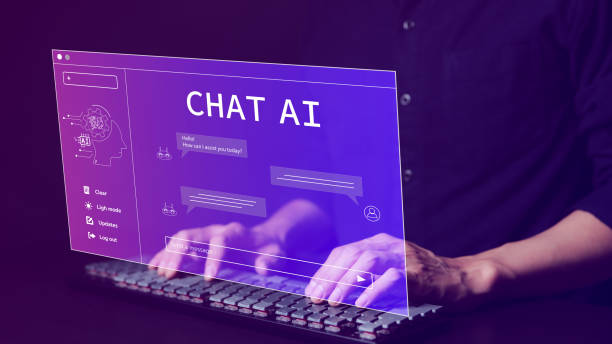
In the rapidly evolving landscape of scholarly communication, technological advancements continue to reshape traditional processes. One such innovation that has garnered attention is ChatGPT, a powerful language model developed by OpenAI. As an editorial services provider, we at eContent Pro find ourselves at the intersection of technology and academic publishing, prompting us to explore the question: Will ChatGPT disrupt peer review?
In this blog post, we will critically consider the benefits and pitfalls of incorporating ChatGPT in peer review processes.

Understanding Peer Review
Before diving into the potential impact of ChatGPT, it's essential to understand the significance of peer review in the academic world. Peer review is the cornerstone of scholarly publishing, ensuring that research articles undergo rigorous evaluation by experts in the field before being accepted for publication. This process helps maintain the quality and integrity of scientific knowledge.
ChatGPT and Automated Peer Review
ChatGPT's capabilities raise intriguing possibilities for the peer review process. With its natural language processing and understanding capabilities, ChatGPT can potentially assist in various stages of peer review. Automated systems could aid in identifying potential flaws in methodology, detecting inconsistencies in data interpretation, and even suggesting improvements in writing style.
The Potential Benefits
- Efficiency and Speed: ChatGPT's ability to process vast amounts of information quickly can significantly reduce the time required for peer review. This could lead to faster dissemination of research findings, benefiting both authors and readers.
- Quality Enhancement: Automated systems can assist in identifying common pitfalls in research, enhancing the overall quality of submissions. By addressing methodological issues or suggesting improvements, ChatGPT could contribute to more robust and rigorous scholarly work.
Challenges and Considerations
- Ethical Concerns: While automation presents opportunities, ethical concerns must be carefully considered. Striking the right balance between human expertise and machine assistance is crucial to maintaining the integrity of the peer review process.
- Bias and Fairness: Like any technology, ChatGPT is not immune to biases present in its training data. Ensuring fairness and avoiding the perpetuation of biases in scholarly evaluation is a challenge that requires careful attention.
- Subjectivity in Evaluation: Certain aspects of peer review involve subjective judgments that may be challenging for automated systems to navigate. The nuanced evaluation of theoretical frameworks or the interpretation of results may still require the expertise of human reviewers.

Can ChatGPT and Other AI Tools Replace Human Reviewers?
AI tools, including ChatGPT, can be powerful tools for automating certain tasks and helping in various domains. They excel at tasks such as language translation, information retrieval, text summarization, and more. However, there are several factors to consider when discussing the potential replacement of human reviewers by AI tools:
- Complexity and Context Understanding: AI tools often lack a deep understanding of context and may struggle with highly nuanced or complex situations. They may generate responses that seem appropriate on the surface but lack the depth of understanding that a human reviewer could provide.
- Ethical and Moral Judgment: Many tasks, especially those involving ethical or moral considerations, require human judgment. AI tools lack the ability to make value-based decisions and may not be able to weigh the ethical implications of their responses.
- Subjectivity and Emotional Intelligence: Human reviewers bring emotional intelligence and a subjective understanding to their assessments. They can empathize with users, understand cultural nuances, and adapt their responses accordingly. AI tools, as of now, struggle to match this level of emotional intelligence.
- Bias and Fairness: AI models can inadvertently perpetuate biases present in their training data. Human reviewers can recognize and address biases, adjusting their assessments to promote fairness and equity.
- Dynamic and Evolving Content: AI models may not be as adept at handling rapidly changing or evolving content as human reviewers. Humans can adapt to new information, cultural shifts, and emerging trends more easily.
- User Engagement: Human interactions often require a level of empathy and understanding that AI tools may find challenging to replicate. Users may prefer interacting with humans for certain tasks, especially those that involve emotional support.
- Error Handling: AI models are not infallible and can make mistakes. Human reviewers can learn from errors and improve over time, while AI models require ongoing updates and maintenance.
- Legal and Regulatory Compliance: Certain tasks may require compliance with specific regulations or legal frameworks. Human reviewers can better navigate these complexities and ensure that processes adhere to legal standards.

Final Thoughts
As technology continues to advance, it is inevitable that the landscape of peer review will undergo transformations. While ChatGPT and similar technologies hold promise for enhancing efficiency and quality in the peer review process, a cautious and ethical approach is essential. At eContent Pro, we recognize the potential benefits of incorporating such tools while acknowledging the importance of maintaining the core principles of peer review.
The future of scholarly publishing may very well involve a collaborative effort between human expertise and AI assistance. By embracing innovation responsibly, we can ensure that the peer review process evolves to meet the needs of the academic community while upholding the standards that define the pursuit of knowledge.

About eContent Pro
Based in Hershey, PA, eContent Pro offers high-quality editorial services with the fastest turnaround (1-2 business days, sometimes the same day, at no extra cost) and exceptional customer service. Since our inception, we have provided copy editing services to scholars in 90+ countries to achieve successful publications, and we have supported publishers, university presses, and organizations by streamlining their publishing workflows.